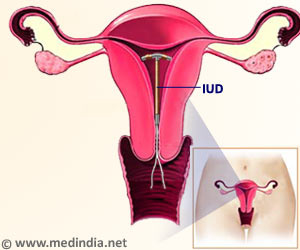A new study by researchers at the University Hospitals of Geneva, Switzerland, has found that the hormone replacement therapy (HRT) does help decrease the risk of developing coronary
Researchers at the University Hospitals of Geneva, Switzerland have revealed that the hormone replacement therapy (HRT) does help postmenopausal women by decreasing the risk of developing coronary artery disease.
Though it was believed that HRT may help decrease this risk in women, some well-known clinical investigations, such as the Heart and Estrogen/progestin Replacement Study (HERS), were unable to demonstrate an improved outcome.Now, the team of Swiss researchers have used PET scans to evaluate the effect of long-term hormone replacement therapy with estrogen, mostly combined with progestin, on heart vessel function in 48 postmenopausal women.
The volunteers had been treated for coronary risk factors, such as hypercholesterolemia (high blood cholesterol) or arterial hypertension.
They were divided into three groups according to HRT: Group 1 comprised 18 women who were on HRT at baseline and at follow-up positron emission tomography (PET) assessment of coronary endothelial function (the inner lining of the coronary vessels); group 2 comprised 18 women who were not on HRT; and group 3 comprised 12 women who were on HRT at baseline, but not at follow-up PET exam.
"In the current study, a normal function of the coronary endothelium was indicated by a PET-measured flow increase in the heart vessels during sympathetic stimulation with cold-pressor testing, while an impaired increase, absence or even decrease in flow indicated a functional abnormality of the coronary endothelium," said Dr. Thomas Schindler, chief of nuclear cardiology at the University Hospitals of Geneva.
"Given that preventive medical treatment of coronary risk factors, such as statins (cholesterol-lowering agents) or angiotensin-coverting enzyme inhibitors, usually improves coronary endothelial function, it is not known whether HRT, which commonly promotes the release of endothelial-derived NO in postmenopausal women with already medically treated coronary risk factors, might still exert an additional protective effect on the function of the coronary endothelium and, thus, the development of coronary artery disease," he added.
Advertisement
In addition, postmenopausal women who gave up HRT during the observational period demonstrated the most severe drop in the coronary endothelial function.
He also stressed that further research is needed to test whether or not HRT replacement in postmenopausal women will result in an improved clinical outcome.
The study "Beneficial Long-term Effect of Hormone Replacement Therapy on Coronary Vasomotion in Postmenopausal Women With Treated Coronary Risk Factors," was recently presented at SNM's 55th Annual Meeting.
Source-ANI
RAS/L











